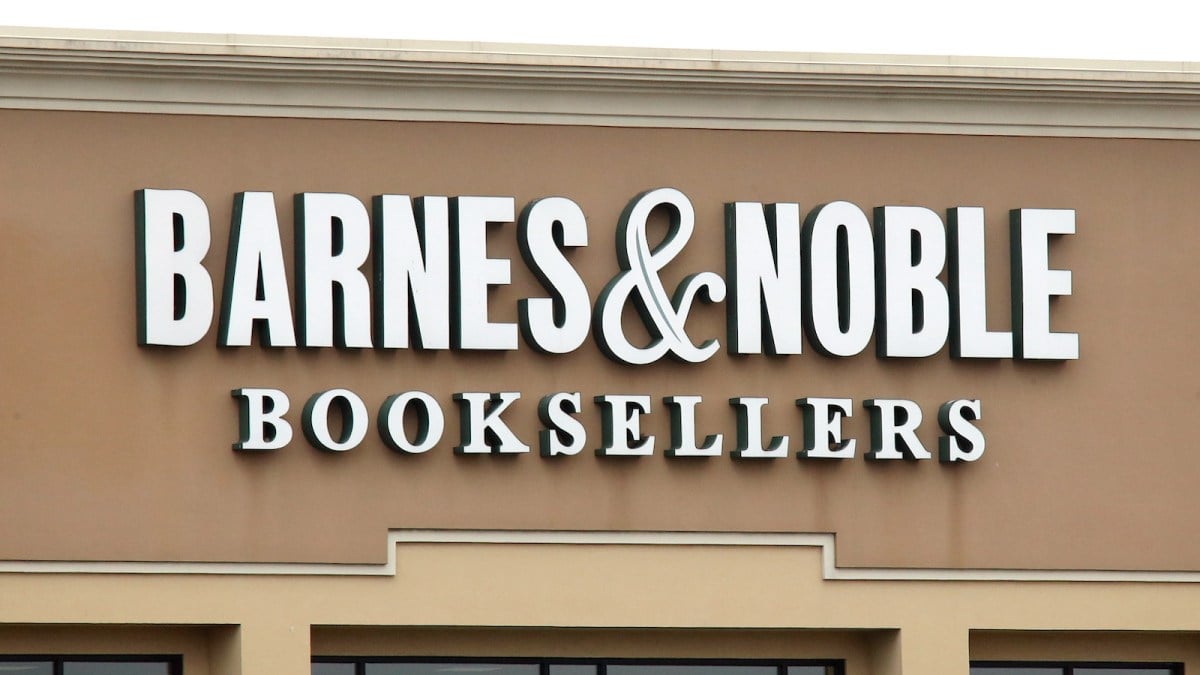Barnes and Noble is trending today, but not for reasons the company is likely celebrating.
On Aug. 18, author and Asian Pacific American Award winner Kelly Yang posted a video on Twitter in which she shared that Key Player, the next entry in her Front Desk series, will not be appearing on Barnes and Noble shelves due to an unfortunate new company initiative.
“Y’all, I’m so sorry,” Yang said in the video. “I just heard the news. Barnes and Noble has suddenly decided not to carry Key Player, the fourth Front Desk book coming out in two weeks. I’m told it’s a nationwide decision — they’re only picking the top one to two children’s books per publisher, per season.”
Referencing an article from Book Riot that identified Yang’s debut Middle Grade novel Front Desk — the first in the Front Desk series — as “one of the most influential children’s books of all time,” Yang got emotional when she pointed out that despite the honor, it’s not enough according to Barnes and Noble’s potential new standards.
“And despite my books being one of the most influential children’s books of all time, I’m not ‘top enough’ for Barnes and Noble,” Yang said. “This hurts because, if my books can’t be sold in stores, then what chance do I or any marginalized author have of ever being one of the top one to two books?”
Readers and fellow writers immediately sounded off in the wake of Yang’s post, leading #BarnesandNoble to trend on Twitter as conversations about the chain’s possible decision brought forth a legion of angry responses. Author Gabi Burton reasoned that while there’s plenty of misinformation out there, the fact remains that Barnes and Noble is not prioritizing the visibility of marginalized, debut, or Middle Grade authors.
Any author will tell you that the publishing world is as grueling as it is unpredictable, but as @natasha_abe pointed out, major corporations monopolizing entire markets can be as detrimental to consumers as it is creators.
As a former children’s lead bookseller herself, @MarloBerliner asserted that she knows firsthand how valuable it is for parents and kids alike to peruse diverse books and authors right there in the store.
User @r_s_hawk wondered why, if this is how Barnes and Noble is going to treat debut authors — particularly writers of color — those writers should pursue traditional publishing as opposed to indie or self-publishing.
Published in 2018 by Scholastic, Yang’s Front Desk follows 10-year-old Mia Tang, an aspiring writer who wants to help her family run the Calivista Motel where they work while simultaneously preventing its mean owner from discovering that her parents are hiding immigrants in the rooms. In addition to the Asian Pacific American Award for Literature, Front Desk has won numerous other awards and Scholastic has since published three sequels: Three Keys, Room to Dream, and the forthcoming Key Player.
As a New York Times bestselling author, one would think that Yang would have a relatively easy time being featured in bookstores across the country. Alas, Barnes and Noble’s new policy, if actually implemented, would make that possibility plummet.
“But the thing that just kills me,” Yang went on to say in her video, “is how many kids won’t be able to see themselves represented in a nationwide bookstore.” Holding up Key Player, she added, “I hope they know that when they see this cover of a ten-year-old Chinese-American girl just trying to go for her dreams — a girl who believes she has a shot, the same as everyone else — how much this cover means to kids.”
Yang’s video has received hundreds of comments and thousands of retweets and likes as fellow book lovers continue to sound off about Barnes and Noble’s decision to limit author visibility in its stores. While the company has yet to give an official statement about the potential new policy, many store members are wondering whether or not they’ll continue shopping there if it ever does see the light of day.
Many are understandably advocating for indie and local bookstores, which tend to be more inclusive of underrepresented authors.
Some have decided that the best (and perhaps only) use for Barnes and Noble moving forward is as a pit stop.
Others, like @TLM_writes, have ideas about how you can navigate the boat-rocking waters that companies like Barnes and Noble continue to disrupt.
Burton similarly shared a thread on how to support authors in light of Barnes and Noble’s decision, adding that preordering books and requesting them at both bookstores and your local library are great ways to illustrate the demand for titles not as prominently displayed.
For anyone who still wants to shop at Barnes and Noble despite the company’s questionable ethics, @finleychuva has some advice.
“We all deserve shelf space,” Yang concludes in her video, giving voice to first-time and underrepresented writers everywhere. “Not just the top one to two people. We all deserve a chance to go for our dreams.”
One can only hope that Barnes and Noble executives — even if just one or two — are listening.

